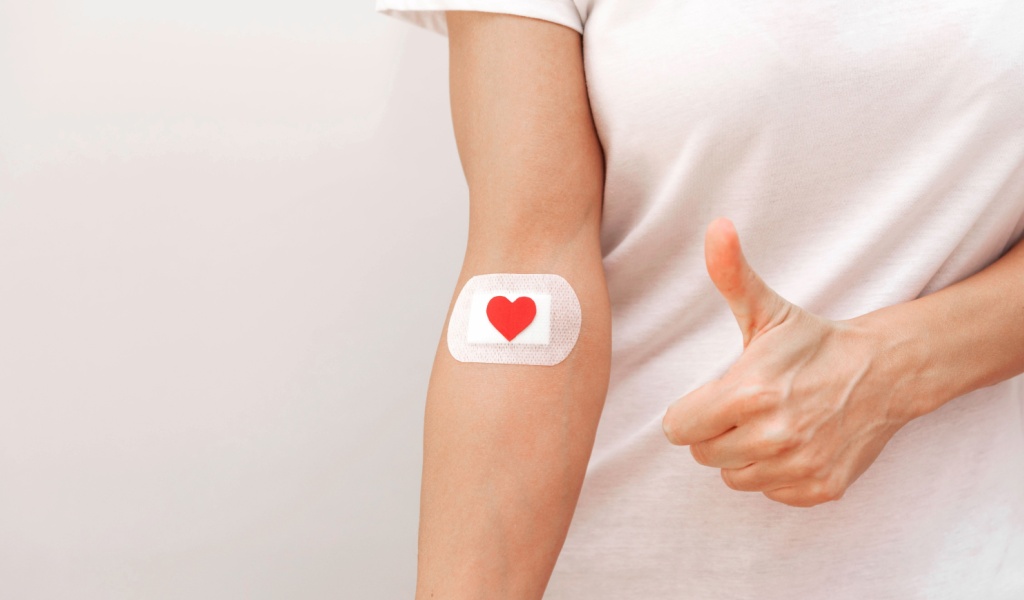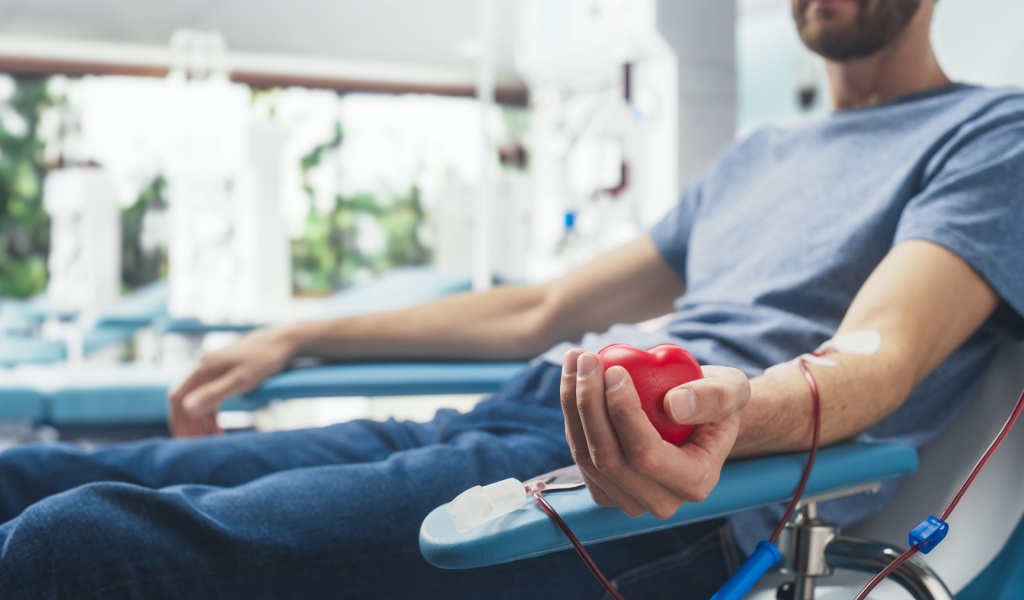Have you ever rolled up your sleeve to donate blood? Most of us connect blood donation with emergency rooms, road accidents, or aiding individuals with chronic diseases like sickle cell disease or cancer. However, new scientific research indicates that this generous act could benefit the donor significantly. That’s right, donating blood may reduce your chances of developing certain types of cancer!
Let’s take a look at the surprising link between humanity and oncology.

The Science Behind the Link Between Cancer and Blood Donation
Research from the Francis Crick Institute in London has revealed a fascinating link between frequent blood donation and a lower risk of blood cancers. Researchers evaluated blood samples from over 200 males who donated blood at least thrice a year for 40 years. They discovered that these regular donors had some genetic mutations in their blood stem cells, making them less vulnerable to harboring blood cancers.
These mutations, especially in the DNMT3A gene, are linked with a lower risk of leukemia. Research demonstrates that donating blood may stimulate the production of healthy blood cells, which in turn could assist in preventing the development of cancerous cells.
According to new studies by several health institutions and sites such as NutritionFacts.org and Nice News, donating blood frequently could lower the risk of blood cancers like leukemia, lymphoma, and myeloma.
But how does it work? There are several main mechanisms involved; let’s explore them further.
Genetic Mutations That Can Be Beneficial
Another interesting discovery emerged from a study of long-term blood donors in the UK. Scientists identified that many of these contributors carried mutations in a gene called DNMT3A. This gene usually assists in regulating DNA methylation, a process that turns genes on or off. Mutations in DNMT3A can result in a condition known as clonal hematopoiesis, where specific blood stem cells reproduce more than others.
Now, here’s the twist: This condition raises the risk of blood cancer in most people. However, in regular donors, the mutations seemed to be different. Astonishingly, they were linked to a drop in cancer risk!
The reason? The theory says that the stress of repeated blood donation stimulates the body to produce new blood cells, promoting only the healthiest stem cells to flourish. Harmful cells are weeded out, which may lessen the risk of them turning cancerous.
It’s a little like trimming a plant to encourage healthier growth.
Boosting The Immune System
Another excellent benefit of donating blood repeatedly is that it might help your immune system stay sharp. When you donate blood, your body must produce new red blood cells, platelets, and plasma to replace what it has lost. This regeneration process kickstarts your bone marrow and keeps your blood supply fresh, which could help your immune system be vigilant and prepared to catch any suspicious cells before they mutate into something grave.
A more attentive immune system is better at identifying and dealing with pre-cancerous or cancerous cells early on!
The Connection Between Iron and Cancer
Iron is essential for the human body. It helps transport oxygen through our bloodstream and supports energy production. However, just like everything else, balance is vital.
When iron levels exceed regular levels, an “iron overload” condition can promote oxidative stress, where your cells are overloaded with unstable molecules known as free radicals. These free radicals can harm DNA and pave the way for cancer. Research has demonstrated that elevated iron stores are linked with an increased risk of several cancers, particularly liver, colon, and lung cancers.
Regular blood donation decreases iron levels in the body. According to research published in the Journal of the National Cancer Institute, people who donated blood twice a year had significantly reduced iron stores and a reduced chance of getting cancer compared to those who didn’t donate.
Thus, by donating blood, you share your life energy and detox your body!

Who Is Eligible for Blood Donation
While donating blood is usually harmless, it’s not for everyone. You must:
- Be between the ages of 17–70 (this differs slightly by country)
- Be healthy
- Weigh a minimum of 110 lbs (50 kg)
- Refrain if you suffer from anemia, uncontrolled blood pressure, or certain chronic illnesses.
- Not be pregnant
Always seek professional medical advice if you have any concerns.
Similarly, waiting the recommended time between donations, generally 8 weeks for whole blood and less for plasma or platelets, is crucial to let your body heal completely.
Statistics From Real-Life
A study in Nebraska monitored over 1,200 people for a few years. It turned out that people who gave blood at least two times a year had up to a 37% lower risk of getting cancer compared to people who didn’t donate. And even if the donors did get cancer, their survival rates were better.
Nevertheless, this doesn’t guarantee that blood donation is a magical shield against cancer. However, it might just tip the scales in your favor!
Other Health Benefits of Donating Blood
Cancer prevention is only one significant aspect of donating blood. The following are some of the other health perks that come with frequent blood donation:
- Better mental health
- Calorie burn
- Improved heart health
- Regular basic medical examinations
A Win-Win Scenario for All
It’s uncommon for a noble act to pay you back in such a powerful way. Donating blood might be one of those magnificent win-win situations. You help someone in a life-threatening situation, and in return, you lessen your risk of the most dreaded disease of our time!
Of course, donating blood shouldn’t replace other healthy practices. A balanced diet, staying active, avoiding smoking, and handling stress are all important pillars of cancer prevention. However, you may consider donating blood as one more effective tool in your wellness toolbox!
Therefore, the next time you’re near a blood bank or come across a donation drive, consider taking a few minutes to donate blood. A few minutes of queasiness will be well worth your time when the result is that you may be helping save someone’s life and quietly prolonging your own!



